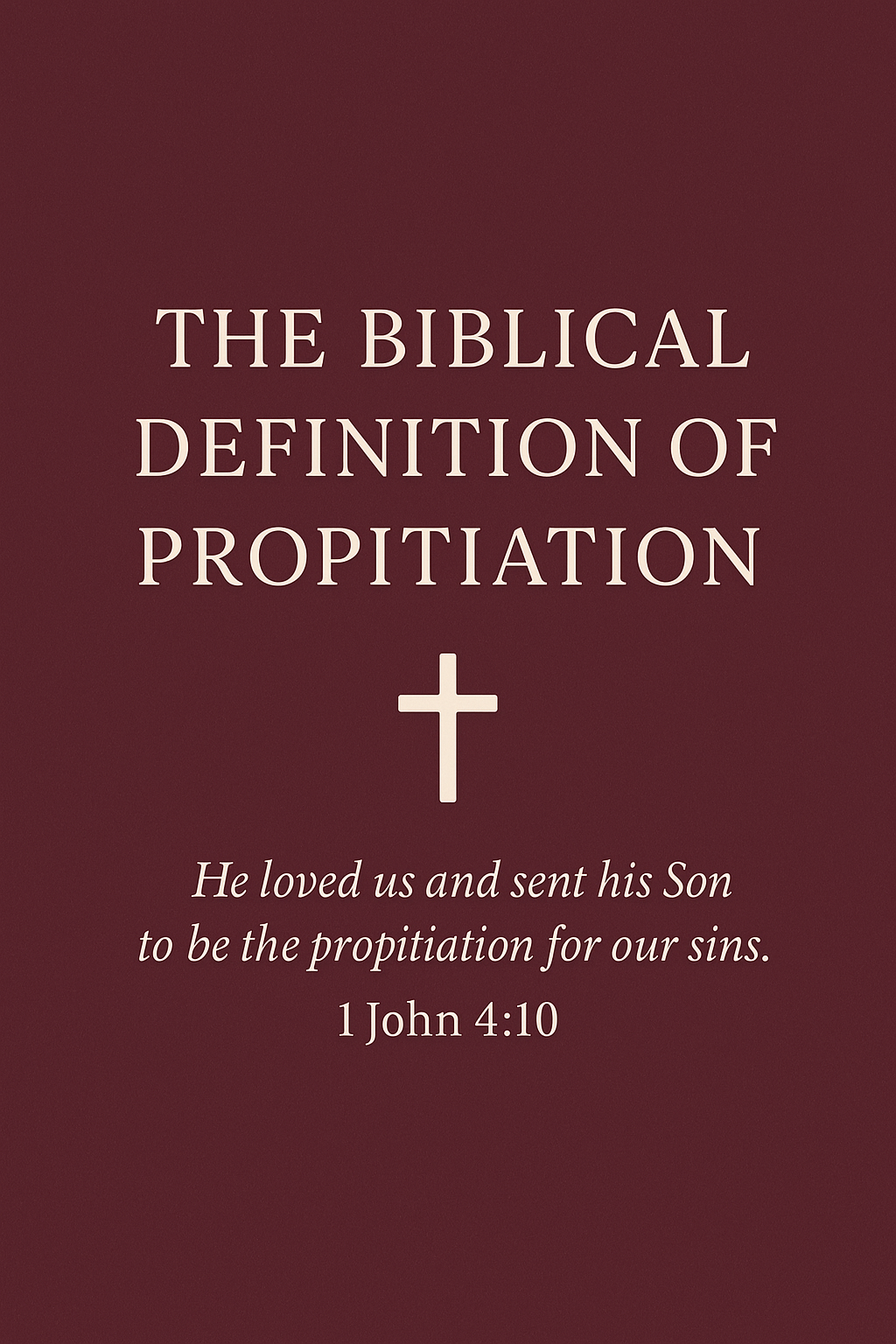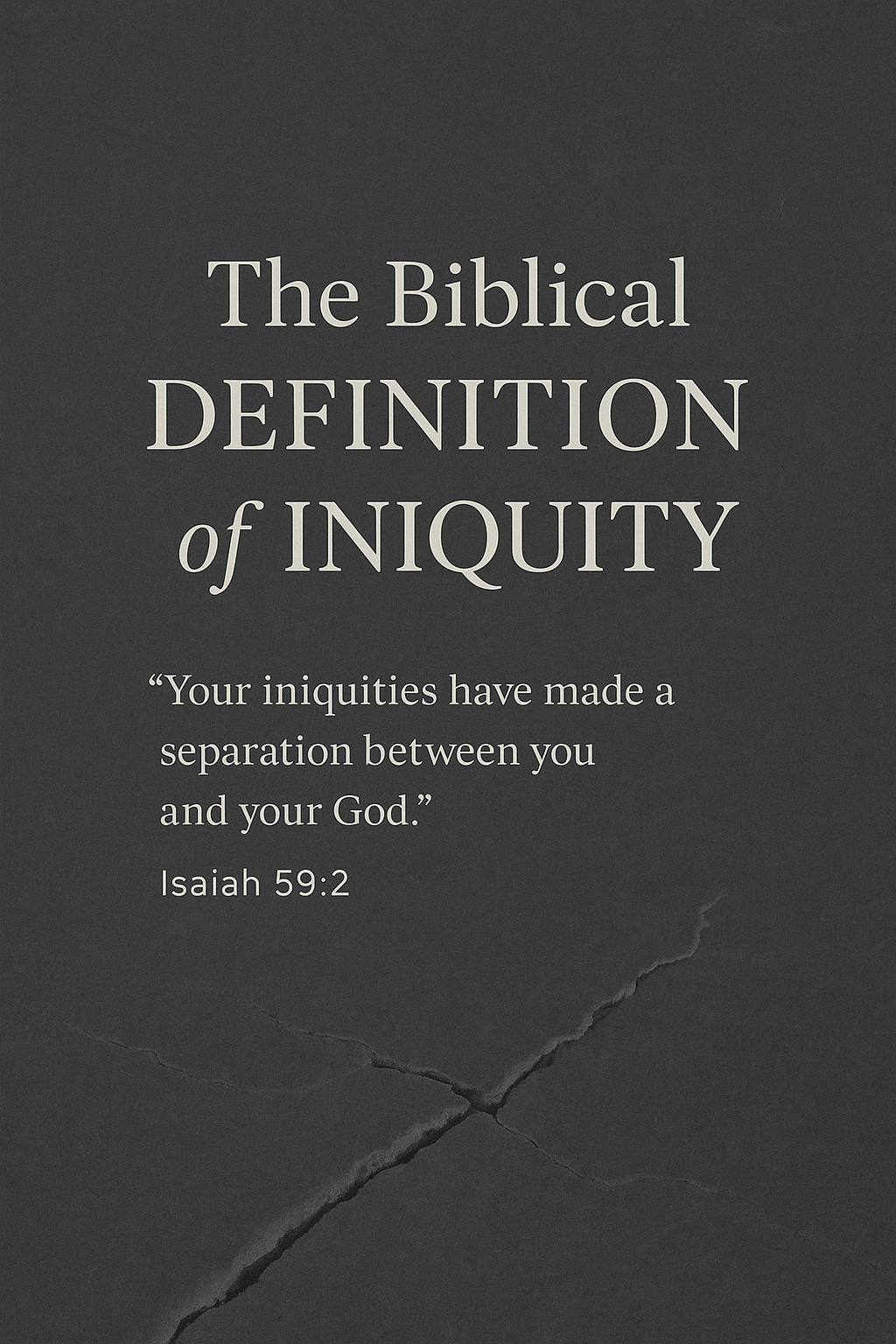Biblical Definition of Propitiation: Understanding God’s Wrath Averted Through Christ
The biblical definition of propitiation centers on the concept of satisfaction—specifically, the satisfaction of God’s righteous wrath against sin. Propitiation is a profound theological term that explains how God’s justice and holiness are honored while sinners are forgiven and reconciled to Him. This blog post will explore the biblical meaning of propitiation, its Old Testament roots, New Testament fulfillment in Jesus Christ, and its vital role in Christian salvation.
What Does Propitiation Mean Biblically?
The word propitiation means satisfaction or appeasement of wrath. Because God is holy and just, His anger burns against sin (Romans 1:18). Sin, by its very nature, incurs God’s righteous judgment and punishment. However, God’s love and mercy desire to forgive sinners without compromising His justice. Propitiation is the means by which God’s wrath is fully satisfied so that He can justly pardon sinners (Romans 3:24-25).
In the Bible, propitiation is not about humans offering gifts to appease God, but rather God Himself providing the means to satisfy His own justice through the sacrificial death of Jesus Christ. Christ is described as the propitiation for our sins, meaning He bore the punishment that we deserved, thereby turning away God’s wrath (1 John 2:2; Romans 3:25)13.
Old Testament Foundations of Propitiation
The concept of propitiation has deep roots in the Old Testament sacrificial system. The Greek word hilasterion, translated as "propitiation" in the New Testament (Romans 3:25; Hebrews 9:5), corresponds to the Hebrew kapporeth, which refers to the "mercy seat" or the lid of the Ark of the Covenant (Exodus 25:17-22).
On the Day of Atonement, the high priest sprinkled the blood of a sacrificial animal on the mercy seat to make propitiation for the sins of Israel (Leviticus 16). This act symbolized the covering and satisfaction of God’s wrath against sin, enabling God to remain just while forgiving the people. The mercy seat was thus the place where God’s wrath was turned away by the blood of the sacrifice24.
New Testament Fulfillment in Jesus Christ
In the New Testament, Jesus Christ is revealed as the ultimate and perfect propitiation. Unlike the repeated sacrifices of animals, Christ’s sacrifice was once and for all (Hebrews 9:12). By His death on the cross, Jesus bore the full wrath of God against sin as our substitute, satisfying divine justice and reconciling us to God (Romans 3:24-25).
The apostle John explicitly calls Jesus “the propitiation for our sins” (1 John 2:2), emphasizing that Christ’s atoning death turns away God’s wrath and opens the way for sinners to be forgiven and restored. This is not because we earned it, but because God loved us and sent His Son to be the propitiation (1 John 4:10)134.
Theological Significance of Propitiation
Propitiation highlights several key truths about God and salvation:
God’s Holiness and Justice: God’s nature demands that sin be punished. Propitiation satisfies this demand without compromising God’s righteousness.
God’s Love and Mercy: Propitiation makes it consistent for God to show love and mercy to sinners by fully dealing with sin’s penalty.
Substitutionary Atonement: Jesus stands in our place, bearing the punishment we deserve, so that we might receive forgiveness and new life.
Reconciliation: Propitiation is closely linked to reconciliation, the restoration of a right relationship between God and humanity (Hebrews 2:17).
Without propitiation, God’s wrath would remain against sinners, and there would be no hope of salvation (Romans 2:5). The cross is the divine solution to sin’s problem, turning away God’s wrath and offering peace to all who believe.
Key Biblical References on Propitiation
Romans 3:24-25 (KJV): “Being justified freely by his grace through the redemption that is in Christ Jesus: Whom God hath set forth to be a propitiation through faith in his blood…”
1 John 2:2: “And he is the propitiation for our sins: and not for ours only, but also for the sins of the whole world.”
Hebrews 9:5: Refers to the hilasterion (mercy seat), the place sprinkled with blood for propitiation.
1 John 4:10: “Herein is love, not that we loved God, but that he loved us, and sent his Son to be the propitiation for our sins.”
Leviticus 16: The Day of Atonement rituals illustrating the Old Testament practice of propitiation.
Conclusion
The biblical definition of propitiation reveals the heart of the gospel: God’s justice against sin was fully satisfied by Jesus Christ’s sacrificial death, turning away His wrath and making forgiveness possible. It is through faith in Christ’s propitiatory work that sinners are justified, reconciled, and brought into a loving relationship with God.
Understanding propitiation deepens our appreciation for the cross and the profound love of God who provided a perfect sacrifice to save us. It is the foundation of Christian hope and assurance.
Bibliography with Hyperlinks
Christianity.com, What Does “Propitiation” Mean? Biblical Meaning & Understanding (2019)
Blue Letter Bible, Dictionaries - Propitiation (2025)
GotQuestions.org, What is Propitiation? (2024)
Bible Study Tools, What is Propitiation? Bible Meaning and Definition (2023)
The Gospel Coalition, Propitiation
Ligonier Ministries, What Is Propitiation? (2021)



















